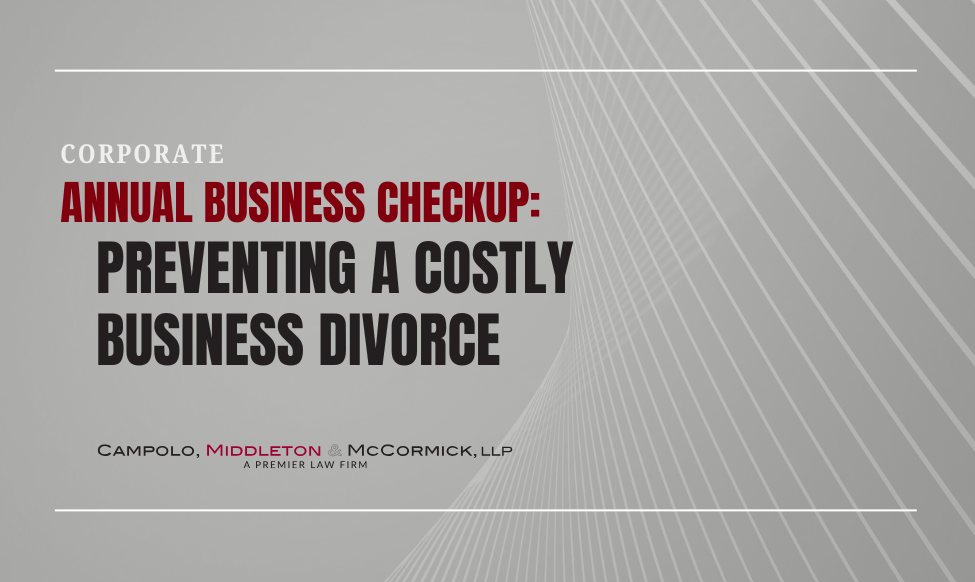The phrase “hope for the best, prepare for the worst” has Latin roots, tracing back to “si vis pacem, para bellum,” meaning “if you want peace, prepare for war,” emphasizing the need to be optimistic, but prepared.
In the context of business relationships, this mindset is especially relevant. Business relationships often begin with shared goals, trust, and mutual interests, but disagreements, changes in circumstances, or evolving visions can lead to disputes, and possibly business divorce. To avoid legal issues and financial strain, it is crucial to be proactive and prepared. Regular assessments of key corporate documents are essential!
For corporations, the bylaws are the rules that generally govern the operation of the business. However, specific agreements between the shareholders should be further fleshed out in a separate shareholder agreement. The shareholder agreement should address everything from management structure to shareholder rights and dispute resolution mechanisms. As legal landscapes and business and personal relationships evolve, outdated agreements can create complications, misunderstandings, and unnecessary disputes. Being proactive helps ensure that all parties are on the same page, ultimately making the navigation of working relationships, the dissolution process, and any other disputes more efficient and less contentious.
For LLCs or other business structures where ownership is shared, the operating agreement is the central document. Some crucial elements to review in this document are the terms for dissolution and buyouts. If a partner wants to exit, how is the buyout structured? Are there clear formulas in place, or will a third-party valuation be required?
For partnerships, a clear partnership agreement is the first line of defense against the fallout from a potential business divorce. A properly drafted partnership agreement should articulate roles, responsibilities, and expectations, and most importantly, provide clear mechanisms for withdrawal, dissolution, and valuation of the business.
Financial mismanagement or disagreements can lead to significant legal issues. Clear and transparent financial agreements help prevent such problems. Key items to review include debt obligations, liability distribution, profit-sharing models, and capital calls or funding expectations. These financial agreements should be revisited annually to reflect the business’s current financial standing and to ensure clarity over financial responsibilities and expectations.
A business divorce does not have to be a messy, expensive ordeal if business owners maintain clear, well-drafted agreements and regularly review their governing documents. A proactive approach to legal maintenance ensures that your business is protected from conflicts, liabilities, and potential complications. By preparing for the worst while hoping for the best, you can safeguard your business’s future and avoid the costly repercussions of neglecting to check up on important governing agreements. Learn more:
- Annual Business Checkup: Shareholder Agreements
- Annual Business Checkup: Operating Agreements
- Annual Business Checkup: Partnership Agreements
For more input and guidance on business divorce, reach out to David Green at 631-738-9100.

